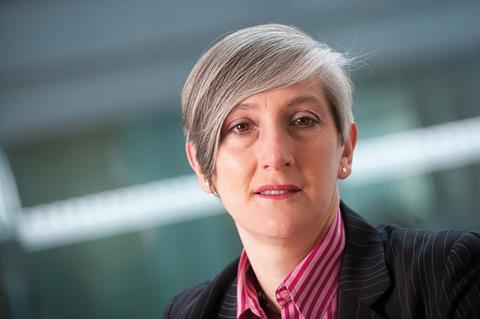Partner, professional indemnity, and member of the Diversity and Inclusion Leadership Group at DWF, London

I had a degree in philosophy, politics and economics, but no idea what to do next. Law appealed as it opened a range of possibilities. Before I started my conversion course, I spent eight months working for the Crown Prosecution Service to check my decision. The job was chaotic, but sitting in court two days a week was fascinating.
I was diagnosed with dyslexia at 21. At the time, I filed the report and forgot about it. I knew I could not spell, but once I started work I could dictate and rely on my PA to spell for me. I now know that my neurodiversity is not confined to dyslexia and it has become easier to recognise the unconscious adjustments that I make. I change my screen colours and sit where I cannot see others’ screens, as I find moving images in my line of sight are the equivalent of people shouting. I am really bad at remembering names – I tell people that when I first meet them.
I became interested in a judicial appointment because I wanted a new challenge, but did not want to give up my day job. I attended a Law Society information workshop and subsequently attended the Pre-Application Judicial Education Programme (PAJE). I was inspired by a blind district judge on the PAJE. He reassured me that I should be open about my neurodiversity when applying.
In May 2020, I was appointed as a fee-paid First-tier Tribunal Judge of the Social Entitlement Chamber. I hear cases relating to disability benefits and sit with a doctor and disability specialist. We are an enabling tribunal. Our overriding objective includes assisting benefit claimants, many of whom are vulnerable people, to participate fully in proceedings. As I was appointed during lockdown, I initially conducted telephone hearings, then video hearings, moving to face-to-face hearings in October. We are still conducting some remote hearings, as some claimants find travel difficult.
'As solicitors, language is our work product. We have the skills to get it right and it can feel particularly pointed when we get it wrong'
I am able to manage two roles as professional liability deadlines are usually fixed well in advance. In my judicial role, the allocations team typically schedule hearings six weeks in the future, so with good organisation I can stay on top of my diary. DWF has long championed flexible working and is supportive in terms of understanding what I need, particularly as I do not have a fixed sitting pattern.
My judicial role has improved my concentration during multi-party phone calls, letting me interrupt politely but firmly. Unrepresented claimants often wander off point, but as our hearings are short, my role includes maintaining focus. While the benefits are underpinned by a complex legal framework, law rarely plays a role in hearings. When it does, it is important to explain the situation clearly to the parties. This can be a challenge as claimants may have mental health conditions or neurodiversity impacting on understanding, and are often stressed. If a party feels heard and understands why a decision was made, then even if the decision is unfavourable, s/he is more likely to accept that justice has been done.
Although over 10% of the population is neurodiverse, neurodiversity is poorly understood and unhelpful stereotypes abound. For example, people with ADHD sleep badly or people with autism are savants, so always challenge your own assumptions. Neurodiversity encompasses dyslexia, DCD (dyspraxia), dyscalculia, ADHD, autism and a range of other conditions, which can overlap, so neurodiverse people often have more than one condition. Even within conditions, neurodiverse people can be impacted differently. The best way to support is to listen: neurodiverse people are usually experts in their conditions and happy to explain their needs. Be sure you ask questions in a non-challenging way. You will get a better response to ‘I don’t really understand dyscalculia, are you happy to tell me how it affects you?’ than ‘what’s up with you then’?
Language can create and maintain unhelpful stereotypes. I was recently confronted by a training slide which started, ‘This is John. John suffers with dyslexia’. In fact, John is dyslexic. He may be disadvantaged by it, but dyslexia does not make him a victim or cause him pain, so it is patronising to say that John suffers. And please do not compare disabled people to ‘normal’ people. We are diverse, not abnormal. It is better to compare the ‘typical’ child to the dyslexic child, as ‘a-typical’ is not a value-laden term. As solicitors, language is our work product. We have the skills to get it right and it can feel particularly pointed when we get it wrong. It is important that we set high standards in the language that we use.































No comments yet